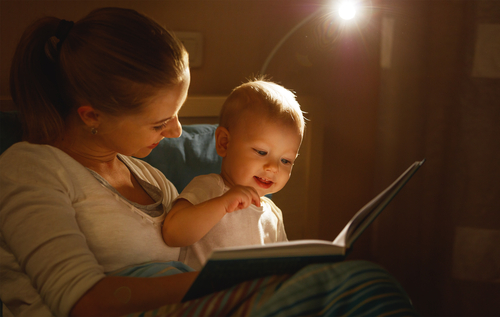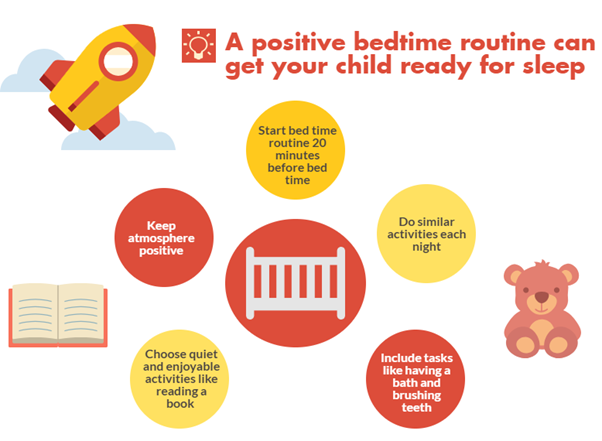
Sleep Routines
A positive bedtime routine helps to soothe and calm your baby so they are ready for sleep. Ideally, your baby will do a few quiet and enjoyable activities 20 minutes before bed. If you help your baby develop good sleep habits, this will help them learn how to settle themselves to sleep.
Positive bedtime routines
Most bedtime routines include activities like brushing teeth (if they have any), having a bath, reading a book, or listening to a story. The main aim is to create a calm and relaxed atmosphere before bedtime.
Example of an after-dinner routine: 
-
Brush teeth
-
Give warm bath and gentle massage (if baby likes this)
-
Put on clean, dry nappy and pyjamas
-
Read a story in a dimly lit room (preferably baby's bedroom)
-
Place in their sleeping bag/suit (depending on weather)
-
Give a cuddle and a kiss
-
Play some gentle music or sing a song
-
Lay baby in bed when drowsy but still awake
What works for some, might not for you. Try different things until your find your best routine.
Sleep environment
For the first 6-12 months, your baby should sleep in the same room as you, in their own safe space, day and night. Always place a baby to sleep on their back with their head and face uncovered.
During the day, you do not have to worry about keeping the noise down or the room dark when baby is sleeping. This will help them distinguish between daytime and night-time. You can keep the lights low at night and use a soft, quiet voice. Limiting play and putting baby down after a feed will encourage sleep.
Changes in routine
Be ready to change routines as your baby grows and enters various stages of development. Growth spurts, teething, and illnesses all affect how baby sleeps. Babies can begin to experience separation anxiety at 6-12 months, sometimes not wanting to sleep and waking up more often at night. Offering comfort and reassurance at these times will help baby feel safe.

Some useful websites:
Related Articles:
[Source: Karitane, 2022; Trissilian, 2022; Raising Children Network, 2021.]
Related Topics


